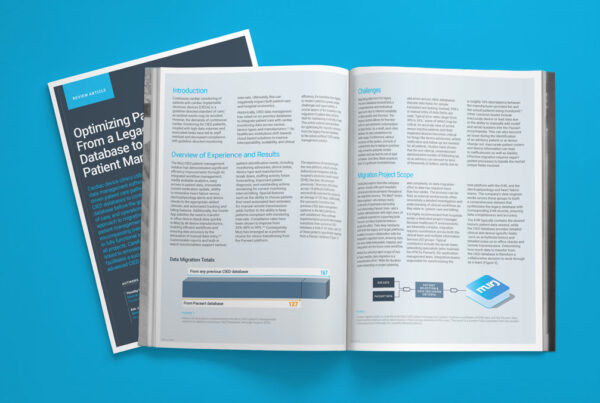The University of Kansas (KU) Health System is addressing a critical challenge in managing patients with cardiac implantable electronic devices (CIEDs). While most modern CIEDs transmit data automatically, many legacy devices still require patients to transmit data manually. Despite frequent reminders via phone, mail, and EHR patient portals, patients often miss their scheduled transmission dates.
This leads to extended care intervals, which delay the detection of device malfunctions or cardiac issues and complicate billing processes. Extended intervals push the start of the next interval back, potentially resulting in the loss of an entire billing interval within the calendar year. Clinics must employ more effective patient reminders or follow-up protocols.
KU’s device management clinic launched a pilot program in June 2023 to improve compliance and efficiency using automated text message reminders. This initiative aimed to reduce the frequency and length of extended care intervals and decrease the time staff spend on reminders.
This study compares the frequency and length of extended intervals and the time spent on reminders before and after implementing the automated text reminders. The results show a significant impact on patient compliance and staff efficiency.
Katie Jaschke, RN, MSN, AGACNP-BC, AACC, Manager of Ambulatory Electrophysiology at KU, and Megan McCabe, Clinical Data and Analytics Manager at Murj, presented the findings of this study at Heart Rhythm 2024 in Boston this past May. Now, the study is available for download as a white paper.
Jaschke also joined a recent Murj peer-to-peer education session to share background on the study and insights gleaned from its results. Watch her session recording below and read on for key takeaways from the study.
Key takeaways
- Significant reduction in extended intervals: The frequency of extended care intervals decreased by 47.8 percent when automated text reminders were sent, and the average length of each extension was reduced by 26.2 days per patient.
- Enhanced staff efficiency: The pilot program cut the time clinic staff spent on patient reminders by over 85 percent, from more than nine hours per year to less than four hours per year per 10 patients.
- Improved patient compliance: Automated text reminders significantly boosted patient compliance, reducing the number of patients experiencing extended intervals from 68.2 percent to 20.4 percent.
- Timely data transmission: Patients were more prompt in transmitting their data, leading to fewer and shorter care interval extensions, ensuring more regular patient monitoring and care.
- Better resource allocation: Reducing manual reminders allows clinic staff to allocate their time and resources to other critical tasks, improving overall clinic efficiency and patient care quality.
About the authors
Katie Jaschke, RN, MSN, AGACNP-BC, AACC, Manager of Ambulatory Electrophysiology, KU Health System
Jaschke oversees the KU EP clinic, cardiac device team, and cardiology technicians managing wearable monitors, tilt table testing, autonomic testing, and ILR implants. Committed to patient-centered care and evidence-based practice, she empowers nurses to participate in research, process improvement, and shared governance.
Megan McCabe, Clinical Data and Analytics Manager, Murj
Based in San Francisco, McCabe is passionate about providing clinicians access to clear, timely analytics for day-to-day use and research purposes. McCabe graduated from Dartmouth College with a bachelor’s degree in biomedical/medical engineering.




